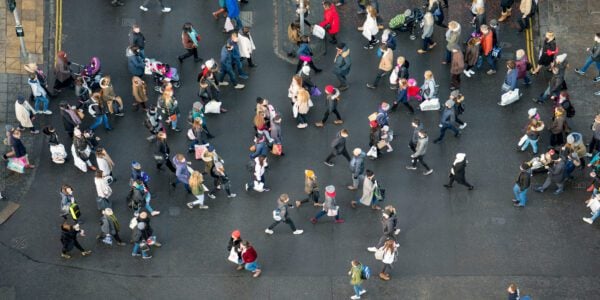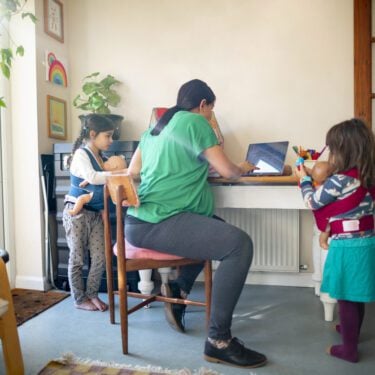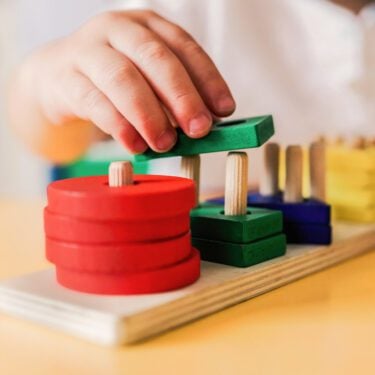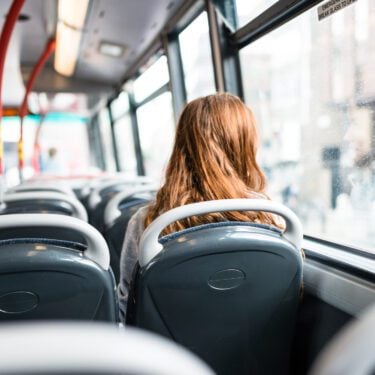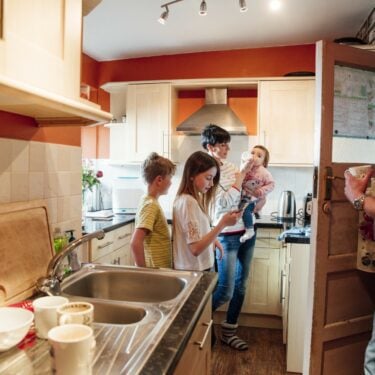The UK ranks at or near the top of the international league table on most economic measures of inequality between regions. The government has pledged to tackle these inequalities by ‘levelling up’ left-behind areas.
There is a danger that the end of the Brexit transition period this year could make this harder. While it is not possible to say which areas will be hardest hit without knowing the shape of any eventual deal, it is already clear that areas dependent on manufacturing, and with higher concentrations of less-educated workers, such as the North of England, South Wales and the West Midlands, will be highly exposed to any economic disruption related to Brexit.
By contrast, there is no systematic relationship between the areas that are most left behind on measures such as pay, employment, education and disability and the areas that have experienced the worst short-term economic impacts from the COVID-19 pandemic. This means that the most natural areas to ‘level up’ are not, in general, the same places that the Prime Minister might wish to target when ‘building back better’ post-COVID.
These are among the findings of new research from the Institute for Fiscal Studies, available today as a pre-released chapter of the 2020 IFS Green Budget (produced in association with Citi and with funding from the Nuffield Foundation).
The report also finds that:
- There is no one definition of being ‘left behind’, but the government will need to put forward its own definition in order to prioritise funding. Our index, which combines pay, employment, formal education and incapacity benefits, picks out many of the areas that are often used as examples, including large towns and cities outside of London and the South East, former industrial regions (including much of the Red Wall), and coastal and isolated rural areas.
- While the local authorities facing the worst short-term economic effects from COVID are generally not those that were already ‘left behind’, there are exceptions. A number of hospitality- and tourism-dependent coastal communities (such as Blackpool, Great Yarmouth and the Isle of Wight), and the centres of some Northern and Scottish cities (such as Liverpool, Newcastle, Glasgow and Dundee), face the ‘double whammy’ of being both left behind and vulnerable to the immediate economic fallout from the pandemic.
- Some areas of public spending – transport and R&D, for example – are heavily concentrated in London and the South East. For example, transport investment spending per head in London over the past five years was 2.8 times higher than the average for the rest of the UK. Closing some of these gaps between regions could be beneficial and contribute to ‘levelling up’. But this does not mean that the Chancellor should take a literal approach to equalising spending across regions.
- The Chancellor should avoid focusing all his attention on investment spending; spending on day-to-day services, such as schools and further education, may be as, if not more, effective. He should pay particular attention to the important role for local governments in ‘levelling up’, and back this up with adequate funding.
- There are currently at least eight place-based spending schemes in England with different objectives and areas of focus. Decisions over the future of several of these are required in the near future, including on a replacement for EU structural funding and Local Growth Deals, for which current funding shortly comes to an end. Rather than reinventing the wheel, the government could seek to build on these existing schemes, and develop a broader strategy around how they fit together.
Alex Davenport, a Research Economist at IFS and an author of the research, said:
‘The challenges faced by disadvantaged coastal communities like Blackpool and Margate are very different to those faced by isolated towns like Merthyr Tydfil, which are in turn different to those faced by large post-industrial cities like Glasgow. The government needs to set out what it intends to achieve through “levelling up”, where it wants to target support, and how. This already complex and difficult task will only be made more complicated by Brexit and the COVID-19 crisis.’
Ben Zaranko, a Research Economist at IFS and an author of the research, said:
‘This year’s Spending Review would be a natural place to start fleshing out some of the detail of the government’s much-vaunted “levelling-up” agenda. Closing some of the gaps in spending on transport and research & development between regions might be beneficial. But for many areas, greater funding for things like schools, further education and local government could be more effective.’
Successive governments have struggled to translate aspirations to alter the distribution of growth and prosperity across the UK into economic or social reality. The impact of Brexit and Covid only adds to the difficulty and complexity of this task by exacerbating some existing inequalities and bringing new ones to the fore. This means it is vital that the levelling-up agenda is supported by the development of a clear strategy and the use of robust evidence, and the IFS Green Budget makes a vital contribution in those respects.”Mark Franks, Director of Welfare at the Nuffield Foundation





